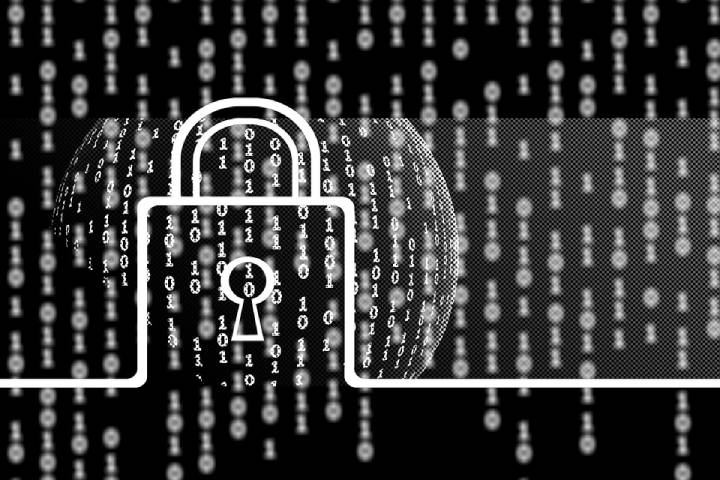Encryption is an important privacy tool for anyone. It is especially crucial for organizations that handle any sensitive, confidential, or personal information using the Internet.
At one time, encryption was used exclusively by the military, government bodies, and other sophisticated environments dealing with highly secret materials. However, now encryption is becoming a standard feature in everyday digital tools, from WhatsApp and Dropbox to online banking and your email.
So, how is encryption protecting your data?
1. What is Encryption?
Encryption is a process for encoding messages or files so that they can only be read by the people who have the proper permissions.
Encryption uses an algorithm to scramble data that requires a key for the receiving or viewing party to decrypt the information. For example, suppose a cybercriminal attempts to intercept your messages or files to use for personal gain. In that case, they will not be able to identify any information as they would not have the key to solve the encryption.
Encryption can help protect the data you send, receive, and store on your device for extra security.
2. What is an Encryption Algorithm?
Encryption uses algorithms to hide your information in a way that will be accessible to the receiver alone. The data scrambled by these algorithms look like random pieces of code. The algorithms deliberately configure this information to easily be turned back into an easily readable format using the appropriate decryption key.
There are multiple types of algorithms, which all involve different ways of scrambling and unscrambling data. All are valuable, but some are more complex and some less so. Those that are more intricate will be more difficult to break.
3. Why Is Encrypted Email Important?
Encrypted email is scrambling the content of your email messages to protect them from being read by unwanted or malicious parties. Sensitive information is sent through email, making it the holy grail for those looking to profit from cybercrime.
This is sensitive personal information like social security numbers, passwords, login information, and bank account numbers. These pieces of information are generally dangerous to send via email, particularly in an email that is not encrypted.
Data breaches can completely upend business operations, causing a lot of frustration, time, and money.
Encrypted email solutions are an easy preventative measure you can take to avoid being featured in a Netflix documentary on the most significant cybercrime attacks of all time.
4. Challenges with Encryption
The most common method criminals use to assail encryption is trying random keys for decryption or using blanket brute force to crack a system. It’s important to remember that encryption strength is directly proportional to crucial size. Hence, as the critical size increases, so do the number of resources required to perform the decryption process.
The end goal is to discourage cyber attackers from cracking your system before harm is done.
Implementing a tool that can add an extra layer of protection to your company’s cybersecurity has never been easier. It is no longer a complex and costly tool but rather highly valuable and changing with the sophistication of the Internet.
Tech Trends
Related posts
Leave a Reply Cancel reply
Hot Topics
Categories
- Ads (5)
- Animes (25)
- Artificial Intelligence (AI) (35)
- Augmented Reality (AR) (10)
- Automotive (9)
- Bitcoin (16)
- Blockchain (24)
- Business (244)
- Business Intelligence (3)
- Cloud Computing (23)
- Computer (128)
- Concrete Technology (1)
- Cryptocurrency (10)
- Cybersecurity (42)
- Data Science (9)
- Database (4)
- DevOps (6)
- Digital Marketing (76)
- Digital Workplace (14)
- Ecommerce (1)
- Education (28)
- Electric Vehicle (EV) (1)
- Electronics & Hardware (17)
- Entertainment (42)
- Fabrication (3)
- FAQ's (1)
- Finance & Marketing (47)
- Gadgets (35)
- Games (8)
- Gear (29)
- HTTPS (1)
- Industry (46)
- Information Technology (90)
- Internet (413)
- Internet of Things (IoT) (41)
- Job (25)
- Machine Learning (6)
- Marketing (92)
- Mobile Apps (21)
- Movies (11)
- Natural Language Processing (6)
- News & Trends (109)
- Programming (4)
- Science & Technology (235)
- Security (81)
- SEO (56)
- Services (36)
- Social Media (73)
- Software (99)
- Sports (1)
- Technology (306)
- Telecom (6)
- TikTok (5)
- Tours & Travels (9)
- Uncategorized (11)
- Virtual Reality (VR) (7)
- VoIP (4)
- Web Technology (42)
- Workforce (17)
- Workspace (6)



Stay connected